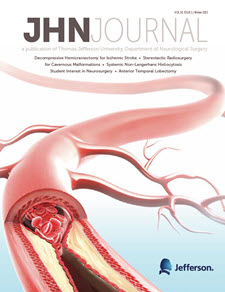Abstract
Introduction
Patients who undergo anterior temporal lobectomy (ATL) to treat temporal lobe epilepsy (TLE) often experience worsened or de novo psychiatric symptoms. There is evidence to suggest that the pathophysiology of epilepsy and mood disorders are linked both functionally or structurally in the brain.1,2 While several studies have examined the role that changes in hippocampal volume may play in predicting post-surgical depression, the role of the amygdala in such prediction has been overlooked, despite extensive literature demonstrating its contribution to emotion processing and expression.3,4 The goal of this project was to determine if change in amygdala volume is a predictor of depression and/or anxiety in TLE patients who undergo ATL, with specific attention given to side of surgery.
Methods
Data was collected from 32 patients who underwent ATLs (19 right, 13 left, matched samples). Pre- and post-surgery Personality Assessment Inventory (PAI) data were collected on 14 ATL patients. The following PAI subscales were utilized in this analysis: Anxiety: PAIANX; Anxiety Related Disorder: PAIARD; Depression: PAIDEP). Volumetric analysis was performed on pre- and post-surgical T1 MRIs using Freesurfer’s longitudinal processing function. Left and right amygdala volumes, change scores, and amygdala asymmetry ratios were calculated taking into account whole brain volume. 55% of the patients were seizurefree after 1 year (RTLE= 8, LTLE= 9); 29% received an Engel Class score of 2 or 3 (RTLE= 7, LTLE= 2)
Recommended Citation
Moadel, BA, Daniel; Doucet, PhD, Gaelle Eve; Pustina, PhD, Dorian; Rider, PhD, Robert; Taylor, BA, Nathan; Barnett, MS, Paul; Sperling, MD, Michael R.; Sharan MD, Ashwini; and Tracy, PhD, Joseph l.
(2015)
"Emotional/Psychiatric Symptom Change and Amygdala Volume After Anterior Temporal Lobectomy,"
JHN Journal: Vol. 10:
Iss.
1, Article 4.
DOI: https://doi.org/10.29046/JHNJ.010.1.003
Available at:
https://jdc.jefferson.edu/jhnj/vol10/iss1/4

